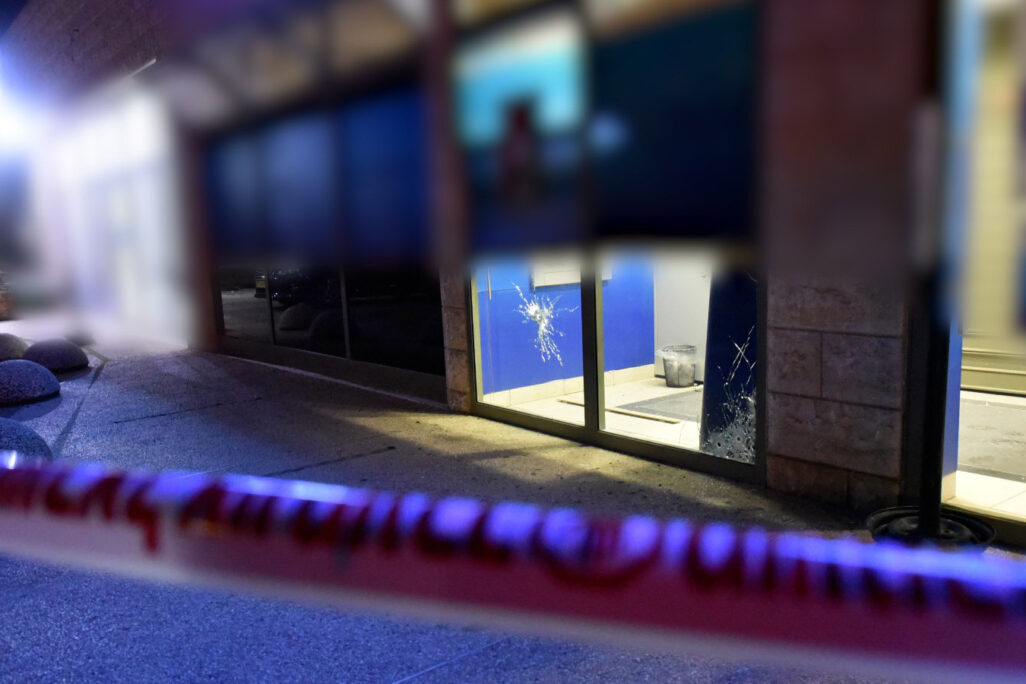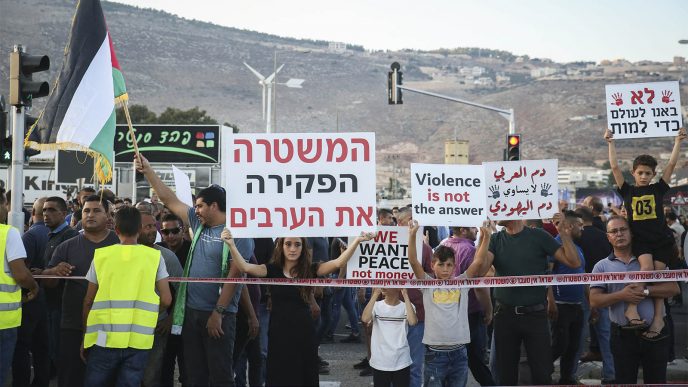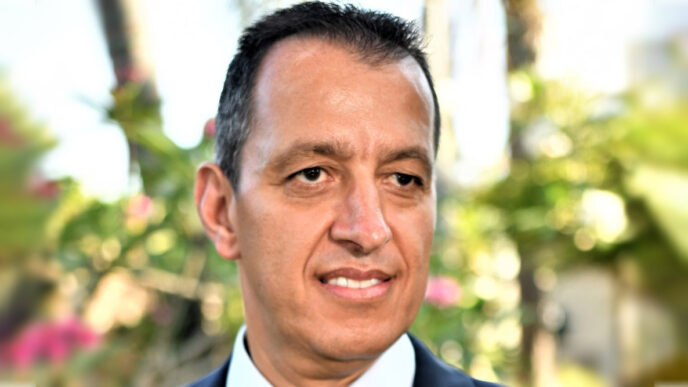
Four Arab Israelis were shot to death this weekend as a result of organized crime activity, bringing the total number of Arab Israelis killed just this year to 103.
According to Ja’afer Farah, head of the Mossawa Center, which advocates for equal rights for Arab Israeli citizens, the economic crisis brought on by the pandemic has led to a surge in organized crime activity, and rising cases of gun violence and murder in Arab communities.

The reason for this, claims Farah, are the dire economic conditions within Arab communities, which have pushed many households to seek loans in the black market after being denied credit in the banking system.
“The Mafia-like creditors in the black market have gained a lot from the economic aspect of the coronavirus crisis,” Farah said. “More and more households have trouble getting loans from the banks after losing their jobs and suffering hits to their income. This is where organized crime comes in and offers loans. Often these loans are made at exorbitant rates, but for many Arabs, this is the only way to cope.”
The coronavirus has hit lower-income households hard, with low-income workers almost three times as likely to be put on unpaid leave as high-income workers. This has caused huge difficulties for many Arab communities in Israel, which tend to be lower-income.. According to Mossawa, the relatively large number of Arab workers employed under illegal and undocumented conditions means that many households have not been eligible for unemployment benefits.
“There’s been a huge spike in violence as part of criminal organizations collecting dues,” Farah explained. “103 people in a year is a huge number, but you don’t always hear of the cases of violence which don’t end in death. Every day, there’s a case of violent intimidation made by these groups against debtors. Every day a car is shot, a house set on fire. Sometimes they shoot people in the leg as a warning. People live in fear.”
“Because the government has abandoned them, Arab households now need to arm themselves and sometimes even form small vigilante groups to defend themselves from organized crime,” he continued.
Only 2 percent of all bank mortgages in Israel are given to Arab households. Arabs represent 21% of the population"
The crisis has affected not only households taking out new loans in the black market. According to Riad Abu Riah, a banker who deals with business loans, there is already a large number of Arab households which owe considerable sums to black market lenders because of difficulties in taking out a mortgage.
“There are several problems with credit accessibility in Arab communities, which existed even before the coronavirus. The crisis has of course exacerbated the problem, but it has been around for years, mainly in the mortgage department,” he explained.

According to Abu Riah, two main obstacles have prevented Arabs access to the mortgage market over the years, and have pushed many of them to seek credit in the black market. The first is low average income, which means that banks decline most major loan applications. The second has to do directly with the mortgage market. A vast majority of Arab homes are built on unregistered land, which makes the property officially illegal. This means that it cannot serve as collateral, which pushes interest rates up and effectively denies most Arabs access to credit.
There are no official estimates of the extent of black market loans in Arab communities, but according to Abu Riah most extended families have at least one member who has taken out illegal loans.
“Only 2 percent of all bank mortgages in Israel are given to Arab households. Arabs represent 21% of the population. Of course, they keep building houses, so black market credit is very widespread in our communities,” said Abu Riah. “People can’t live without homes, so what are they expected to do? They turn to whoever is prepared to loan them the money. This is a huge problem for Arab communities, and with the crisis now, it is threatening to spiral out of control.”






